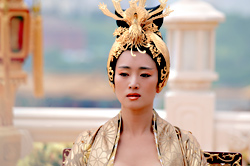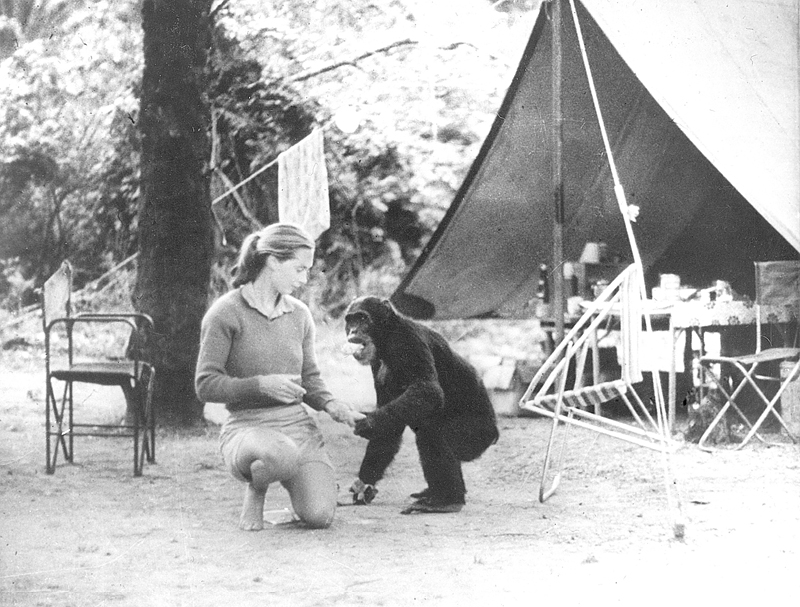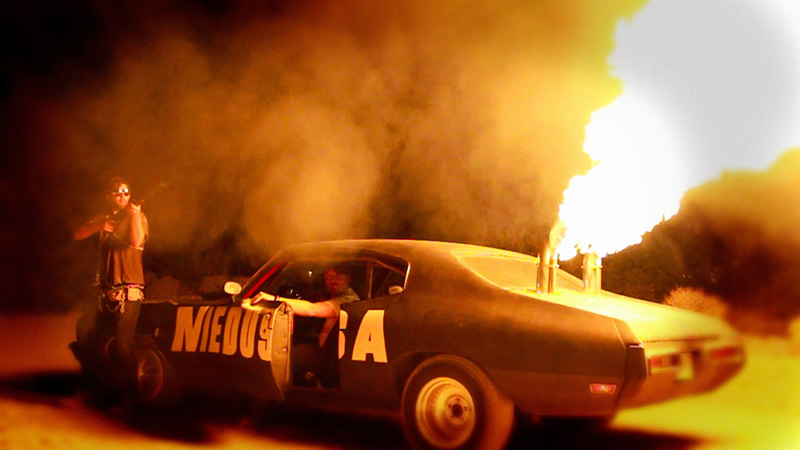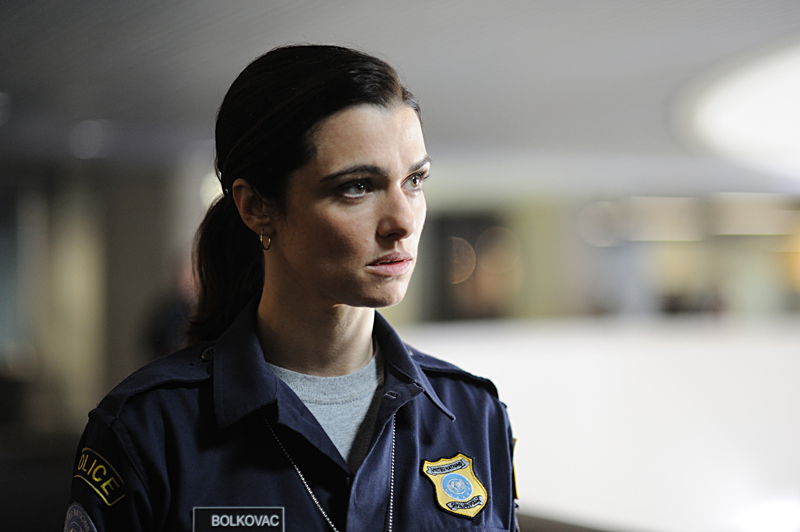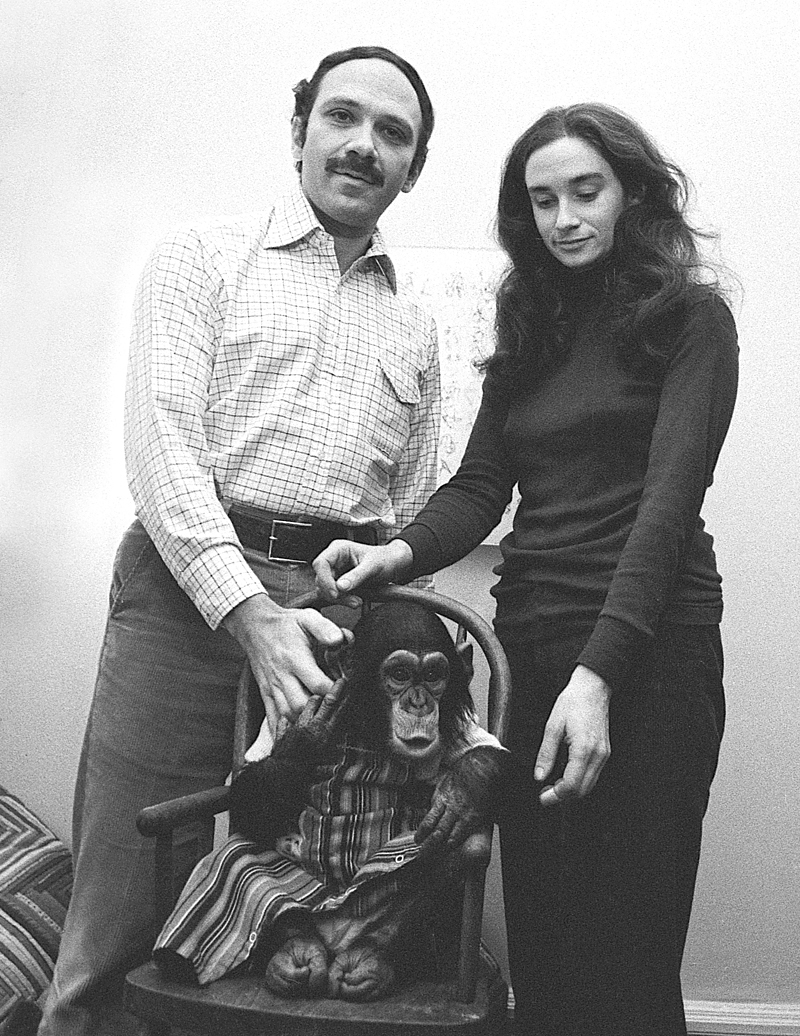Like his Hero and House of Flying Daggers, Zhang Yimou’s third global-market gigaproduction makes little sense in narrative terms. But the sets, costumes, and cinematography are so intoxicating that it doesn’t much matter. Zhang’s interest in the wuxia (martial arts) film may well extend no further than the kick he gets out of constructing ostentatious palaces and then watching from behind the lens as they crumble to the ground—he’s a movie director, in other words. Set in the Later Tang dynasty, Curse pits its cloistered melodrama against the riffraff that threatens to penetrate the royal chambers. It’s a battle of genres, and the wuxia wins.
The Will Durant quote with which Mel Gibson commences Apocalypto could apply here, too: “A great civilization is not conquered from without until it has destroyed itself from within.” Gong Li’s medicine-swilling empress is regrettably anemic—ditto her dialogue. Blame the emperor (a bored-looking Chow Yun-Fat), who has been peppering his lady’s herbal remedies with poisonous black mushrooms. Meanwhile, each of three young princes is scheming for power or love, even as black-suited, scythe-twirling assassins swing on ropes toward the palace like Spider-Man on his web.
Before the impressively acrobatic CGI climax, the film’s seemingly endless revelations of double and triple crosses would play like bad mid-’60s Hollywood-epic wanking were it not for Zhang’s mise-en-scène, including long blue, green, and orange corridors that suggest a kaleidoscope in a fun house. Color combos here border on the psychedelic, but alas, they don’t inspire Zhang to get trippy with the storytelling. This is the director’s flimsiest material to date, and while you’d hope for some sexual frisson in his first film with Gong since Shanghai Triad in ’95, her scenes with Chow deliver nothing but more evidence that Zhang is mainly in it for the carpentry and the computer FX. A great leap forward in film technology or another example of civilization destroying itself from within? ROB NELSON
